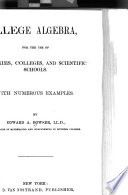 | Edward Albert Bowser - Algebra - 1888 - 868 pages
...log 42 — log 5 = log 2 + Iog3 + log? - Iog5. (6) The logarithm of any power of a number is equal to the logarithm of the number multiplied by the exponent of the power. For let x = log m ; then m = a*. Therefore m" = (a1)" = a** ; whence by definition, log mp = px = p... | |
 | George Albert Wentworth - 1888 - 388 pages
...logarithms are simply exponents, therefore (§381), The logarithm of a power of a number is equal io the logarithm of the number multiplied by the exponent of the power. Thus, log 57 = 7 X log 5 = 7 X 0.6990 = 4.8930. log 3" = 11 X log 3 = 11 X 0.4771 = 5.2481. 413. As... | |
 | James Morford Taylor - Algebra - 1889 - 340 pages
...Let M=a'; then, whatever be the value of/, Mf = ap*. Hence log., (Mf) = px=p log,, M. 306. By § 305, the logarithm of any power of a number equals the...the number multiplied by the exponent of the power ; and the logarithm of any root of a number equals the logarithm of the number divided by the index... | |
 | William Findlay Shunk - Railroad engineering - 1890 - 360 pages
...the dividend diminished by that of the divisor. The logarithm of any power of a number is equal to the logarithm of the number multiplied by the exponent of the power. The logarithm of any root of a number is equal to the logarithm of the number divided by the index... | |
 | Henry Hunt Ludlow - Logarithms - 1891 - 322 pages
...of the dividend minus that of the divisor. 3°. The logarithm of any power of any number is equal to the logarithm of the number multiplied by the exponent of the power. 4°. The logarithm of any root of any number is equal to the logarithm of the number divided by the index of the root. Applications.... | |
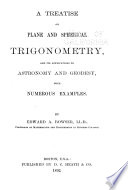 | Edward Albert Bowser - Trigonometry - 1892 - 392 pages
...= logam — log,и. Thus, log = logl7-log5. (6) The logarithm of any power of a number is equal to the logarithm of the number multiplied by the exponent of the power. For let a; = log„m. .-. m = az. .-. logamp = px= (7) The logarithm of any root of a number is equal... | |
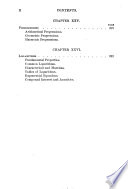 | James Morford Taylor - Algebra - 1893 - 362 pages
...Л/ = a1; then, whatever be the value of p, M* = ap*. Hence loga (Mp) = px=p loga M. 339. By § 338, the logarithm of any power of a number equals the...the number multiplied by the exponent of the power ; and the logarithm of any root of a number equals the logarithm of the number divided by the index... | |
 | Edward Albert Bowser - Logarithms - 1908 - 128 pages
...the dividend minus the logarithm of the divisor. The logarithm of any power of a number is equal to the logarithm of the number multiplied by the exponent of the power. The logarithm of any root of a number is equal to the logarithm of the number divided by the index... | |
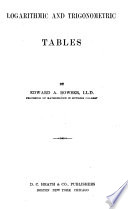 | Edward Albert Bowser - Logarithms - 1895 - 124 pages
...the dividend minus the logarithm of the divisor. The logarithm of any power of a number is equal to the logarithm of the number multiplied by the exponent of the power. The logarithm of any root of a number- is equal to the logarithm of the number divided by the index... | |
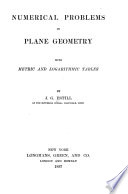 | Joe Garner Estill - Geometry - 1896 - 168 pages
...dividend minus the logarithm of the divisor. III. The logarithm of any power of a number is equal to the logarithm of the number multiplied by the exponent of the power. IV. The logarithm of a root of a number is equal to the logarithm of the number divided by the index... | |
| |